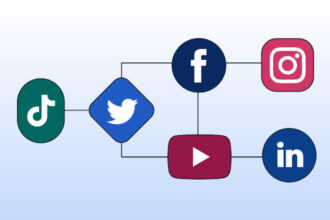Small Business owner knows the challenge: you’ve built something incredible, you offer value, but standing out in a crowded market can feel like shouting into the wind.
What if there was a way to open doors to opportunities you never even knew existed – massive contracts, less competition, and a boost in credibility that echoes far beyond your immediate industry?
Enter government small business certifications. These aren’t just fancy badges; they’re strategic gateways designed to give businesses like yours a real competitive edge in securing contracts with federal, state, and even local governments.
But could your business truly benefit from navigating this world? Let’s explore.
What Exactly Are Government Small Business Certifications?
At their core, government small business certifications are official designations awarded to businesses that meet specific criteria, often related to ownership, location, or economic status.
The main goal of these programs is clear: to ensure that government agencies procure goods and services from a diverse range of suppliers, fostering economic growth and opportunity for all.
Think of it as a specialized “fast lane” for certain types of businesses. When you achieve a certification, you become visible to government buyers who are actively looking to fulfill quotas or set aside specific contracts for certified entities.
The Game-Changers: Why These Certifications Matter for Your Business
Getting certified might seem like extra paperwork, but the potential rewards can be transformative. Here’s why government small business certifications could be a game-changer for your growth:
- Access to “Set-Aside” Contracts: This is arguably the biggest perk. Government agencies are often mandated to award a certain percentage of their contracts specifically to small businesses or those with particular certifications (e.g., Woman-Owned, Veteran-Owned). This means you’re competing against a much smaller pool of contenders, dramatically increasing your chances of winning.
- Reduced Competition: In the general contracting market, you might be up against giants. Within set-aside programs, your competition shrinks to businesses with similar certifications, leveling the playing field.
- Increased Visibility: Government agencies actively search databases of certified businesses when looking for suppliers. Being certified puts you directly on their radar, leading to potential invitations to bid on projects you might never have discovered otherwise.
- Mentorship and Resources: Many certification programs come with invaluable support, including training, mentorship opportunities, and access to networks of other certified businesses and government contracting experts. It’s like gaining a whole team dedicated to your success in the public sector.
- Enhanced Credibility and Prestige: Securing a government small business certification signals stability, reliability, and adherence to high standards. This prestige can also positively influence your reputation in the private sector, attracting new clients and partnerships.
Which Certifications Could Be Yours? (Common Types)
The world of government small business certifications offers several paths, each with its own eligibility criteria. Some of the most common include:
- Woman-Owned Small Business (WOSB): For businesses that are at least 51% owned and controlled by women.
- Minority-Owned Business Enterprise (MBE): While often state-level, federal programs sometimes offer similar advantages for businesses owned by ethnic minorities.
- Veteran-Owned Small Business (VOSB) / Service-Disabled Veteran-Owned Small Business (SDVOSB): Designed for businesses at least 51% owned and controlled by veterans or service-disabled veterans.
- HUBZone (Historically Underutilized Business Zone): For small businesses located in economically distressed urban and rural communities.
- Small Disadvantaged Business (SDB) / 8(a) Business Development Program: For businesses owned by socially and economically disadvantaged individuals, offering a nine-year program with unique benefits.
Is the Journey Worth It? Understanding the Process
Let’s be real: applying for government small business certifications isn’t always a walk in the park.
It requires meticulous research, gathering extensive documentation, and careful attention to detail.
The process can take time, from initial application to final approval.
However, for businesses that genuinely meet the criteria and are committed to pursuing government contracts, the effort often pays off exponentially.
Think of it as an investment in your business’s future growth.
Preparing for certification can also inadvertently lead to a more organized and compliant business overall, benefiting you in many ways.
Your Next Step: Discovering If It’s Right For You
So, could your business be the next to benefit from these powerful programs? The best way to find out is to take the first step.
- Assess Your Eligibility: Research the specific criteria for each certification type. Do you meet the ownership, size, and other requirements?
- Define Your Goals: Are you genuinely interested in government contracts? Do you have the capacity to take on larger projects?
- Seek Guidance: Don’t go it alone. Many organizations offer free or low-cost assistance to small businesses interested in government contracting and certifications. (Consider adding links to relevant government resources or local business development centers here).
Government small business certifications are more than just bureaucratic hoops; they are strategic tools designed to help diverse businesses thrive.
By understanding what they offer and how to pursue them, you might just unlock a whole new chapter of success for your enterprise.
FAQs
1. What is the main benefit of getting a government small business certification? The primary benefit is gaining access to “set-aside” contracts, which are exclusive government contracts reserved specifically for certified businesses, significantly reducing competition.
2. Are all government small business certifications the same? No, there are various types (e.g., WOSB, VOSB, HUBZone, 8(a)), each with distinct eligibility criteria and benefits. The best certification for your business depends on its ownership, location, and other factors.
3. How long does the certification process take? The timeframe varies depending on the specific certification and the thoroughness of your application. It can range from a few weeks to several months, making early preparation key.
4. Can certified businesses only work with the government? No, while the primary benefit is government contracting, the enhanced credibility and visibility gained from government small business certifications can also open doors to private sector opportunities and supplier diversity programs.






